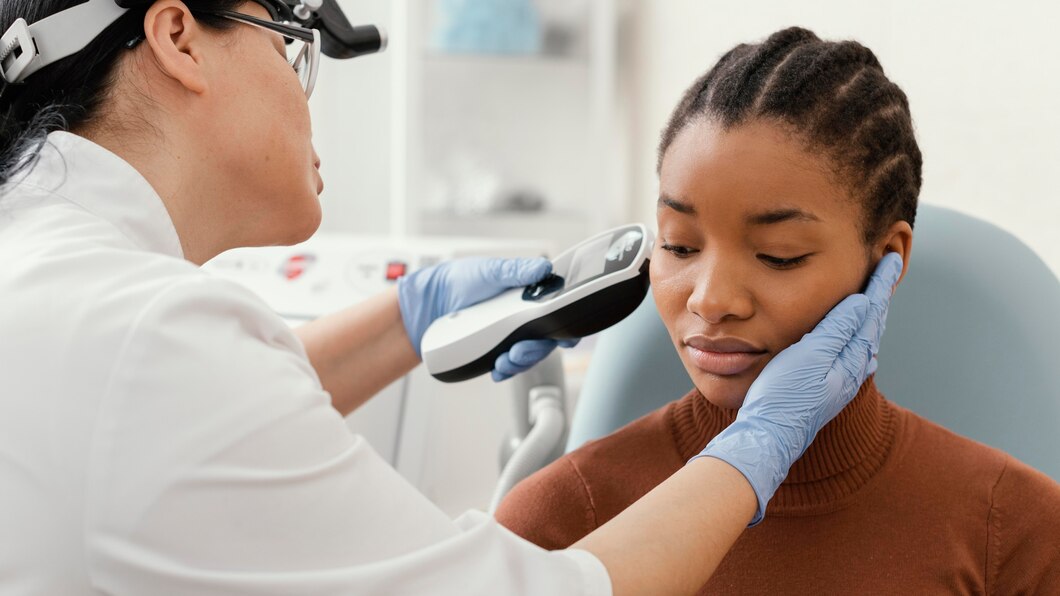
Understanding The Importance Of Early Detection
Do you frequently ask others to repeat themselves or struggle to hear in noisy environments? It may be time for a hearing test. Early detection is crucial, as untreated hearing loss can lead to isolation and cognitive decline. A simple, painless test can identify early signs and enable timely intervention.
Schedule a hearing test today to prioritize your hearing health. This article highlights the importance of early detection and regular assessments for everyone, regardless of age.
How Hearing Loss Can Occur Without Early Detection
Hearing loss often develops gradually and without noticeable symptoms, making it easy to overlook until it becomes severe, potentially leading to long-term damage. Common causes include prolonged exposure to loud noises and age-related deterioration of inner ear hair cells. Untreated hearing loss can result in social isolation, depression, cognitive decline, and a higher risk of falls. Regular hearing tests are essential for early detection and proactive management of hearing health.
The Long-Term Consequences Of Untreated Hearing Loss
Hearing loss is often underestimated, yet it can significantly impact well-being. Untreated can lead to social isolation due to communication difficulties, disconnecting individuals from friends and family. Additionally, it is linked to cognitive decline and dementia, as the brain compensates for reduced auditory input, worsening cognitive issues. Hearing loss also increases the risk of falls by impairing balance and spatial awareness, potentially resulting in serious injuries. Mental health can be affected as well, leading to frustration, anxiety, and depression, which create a cycle of isolation and cognitive decline. Fortunately, early detection and treatment can mitigate these effects, making regular hearing tests and proactive management crucial for maintaining hearing health and quality of life as one ages.
The Benefits Of Regular Hearing Tests
Regular hearing tests are crucial for your health and well-being. Here are the key benefits:
- Early Detection: Tests can identify early signs of hearing loss, allowing for timely intervention and preventing long-term issues like social isolation and cognitive decline.
- Improved Communication: Treating hearing issues enhances your understanding of conversations, reducing frustration and improving quality of life.
- Better Overall Health: Good hearing health lowers the risk of falls, cognitive decline, and depression.
- Personalized Care: Hearing tests provide tailored assessments, enabling audiologists to develop customized treatment plans.
- Cost-Effectiveness: Addressing hearing issues early can save money by avoiding more extensive treatments later.
- Peace of Mind: Knowing your hearing status offers reassurance, helping you maintain quality of life and independence.
To protect your hearing health, schedule regular hearing tests as a priority. For personalized care and expert advice, consider visiting Advanced Audiology Care, where experienced audiologists can guide you. Do so today, and take a step toward a healthier future.
The Process Of A Hearing Test
Undergoing a hearing test is simple and non-invasive. Here’s what to expect:
- Medical History: The audiologist will ask about your hearing issues and factors like noise exposure or family history.
- Physical Examination: Your ear canal and eardrum will be checked with an otoscope for abnormalities or infections.
- Pure Tone Audiometry: You’ll listen to various tones at different frequencies and volumes to measure the softest sounds you can detect.
- Speech Testing: You’ll repeat recorded speech at different volumes to assess your understanding.
- Tympanometry: This measures eardrum movement in response to air pressure changes to identify middle ear issues.
- Interpretation and Recommendations: Your audiologist will discuss the results and recommend treatment options like hearing aids.
The painless process takes about 30-60 minutes, with guidance from your audiologist.
Signs And Symptoms That Indicate The Need For A Hearing Test
Regular hearing tests are essential, but sure signs may require immediate evaluation. Schedule a test with an audiologist if you experience:
- Difficulty Hearing Conversations: Often asking others to repeat themselves.
- Increasing Volume: Frequently raising device volumes.
- Tinnitus: Persistent ringing or buzzing in your ears.
- Social Withdrawal: Feeling isolated due to hearing difficulties.
- Difficulty with High-Pitched Sounds: Trouble hearing high-pitched noises.
- Frequent Headaches or Dizziness: Possible signs of hearing issues.
- History of Ear Issues: Past ear infections or loud noise exposure.
If you notice any of these symptoms, seek a hearing test. Early detection and intervention are vital for hearing health.
How A Hearing Test Can Prevent Long-Term Damage
Early detection of hearing loss is crucial for preserving quality of life. Regular hearing tests help identify issues early, allowing for prompt treatment.
Benefits Of Early Detection:
- Timely Intervention: Early detection enables effective treatments, like hearing aids, to reduce the impact of hearing loss.
- Preventing Health Issues: Quick intervention helps avoid social isolation, cognitive decline, and mental health challenges.
- Identifying Causes: Tests can reveal treatable conditions, enabling targeted treatments to restore hearing.
- Emotional Well-being: Addressing hearing loss early reduces frustration and enhances emotional health.
Regular hearing tests are essential for protecting your hearing and overall well-being. Prioritize your hearing health and schedule a test today.
The Role Of Audiologists In Conducting Hearing Tests
Audiologists conduct hearing tests essential for detecting and treating hearing loss. They utilize techniques such as pure tone audiometry and speech testing to assess hearing abilities accurately. Audiologists develop personalized treatment plans following the assessment, including hearing aids or other assistive devices. They also educate patients on hearing health and preventive measures, such as protecting against noise-induced hearing loss. Audiologists collaborate with other healthcare providers to ensure comprehensive care and address underlying conditions. Scheduling a hearing test with an audiologist is vital for preserving your hearing and preventing the long-term effects of untreated hearing loss.
Conclusion
In conclusion, early detection of hearing loss through regular hearing tests is crucial for preventing long-term damage. Identifying issues at their onset allows for proactive measures to preserve auditory function and enhance overall quality of life. Regular assessments help ensure timely treatment, supporting cognitive health, emotional well-being, and social engagement. By prioritizing hearing health, individuals can safeguard their hearing and maintain a more fulfilling life.